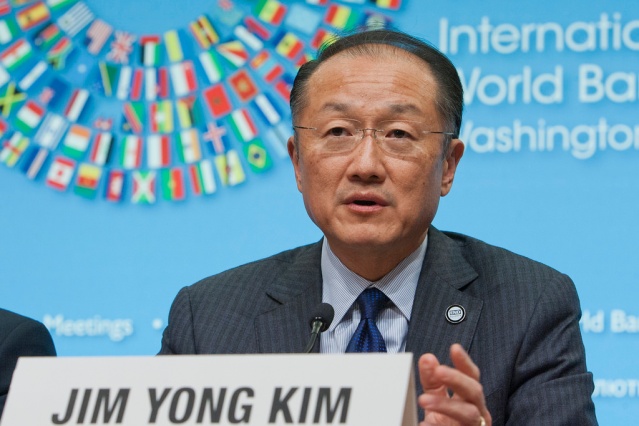European Commission wants a greater involvement of businesses in delivering overseas aid, to ensure that private sector operations in developing countries have a positive impact on society. The commission has already released a policy paper, entitled “A Stronger Role of the Private Sector in Achieving Inclusive and Sustainable Growth in Developing Countries”, that aims to lay out a framework setting out the role of businesses at the forefront of international development and aid programmes in its partner countries. NGOs and other development actors were not so pleased with the new policy paper. The announcement has prompted Oxfam and the European Network on Debt and Development (Eurodad) to release a statement saying the European Commission’s new plan “could put efforts to reduce poverty second to the interests of European companies.”
Six criteria for a public-private partnership for development
European Commission’s paper proposes 12 concrete actions to “improve regulatory business environments in partner countries, support business development and increase access to finance with a focus on micro, small and medium-sized businesses in the formal and informal sector, which play a particularly vital role in job creation.” It also outlines six criteria for access to public funds to leverage private sector engagement:
- The support offered has a measurable development impact
- It is additional to other initiatives. The supported action should not crowd out the private sector or replace other private financing.
- It is neutral as it should not distort the market, should be temporary, and should be awarded through an open, transparent and fair system.
- It is cost-effective and the accountability for the results are shared between public and private sectors
- It has a clear demonstrable effect that catalyzes market development by crowding in other private sector actors,
- It adheres to social, environmental and fiscal standards. Businesses receiving support will have to fist show their compliance with “environmental, social and fiscal standards, including respect for human and indigenous rights, decent work, good corporate governance and sector-specific norms.”
No convincing arguments
However, Oxfam and Eurodad are not convinced the criteria promote enough transparency and are concerned about some aspects related to the initiative. The leading NGOs are worried that the policy paper promotes the use of public resources that include already scarce overseas aid money, to invest in the development of private businesses without adequate structures set in place to explain how their intervention improves the lives of the poorest and most vulnerable. They claim it fails to address other areas of EU policy, such as agriculture, trade, investment and tax. The policies in these areas have the biggest negative effect on developing countries. The NGOs support also the idea that the new paper can create the perfect environment for an expansion of the public sector provision in social sectors, while “health and education and other basic services to vulnerable people cannot be left to the private sector to run as profit-or-loss businesses.” Further discontentment was sparked by the emphasis on the use of Europe’s “political weight” to influence the policies of partner countries increases the risk to undermine the sovereignty and democratic systems in developing countries to pursue European commercial agenda. “There is currently a dangerous emphasis on using EU power to push change in developing countries without recognising that narrow investment interests could be promoted ahead of development goals. Using public resources to ‘leverage’ private finance is of great concern due to the high risk of profit-making motives outweighing poverty reduction objectives,” María José Romero, Policy and Advocacy Manager at Eurodad, said.

Water point set up by Oxfam at UN House, Juba, South Sudan (Photo Credit: Petterik Wiggers/Hollandse Hoogte)
On the other hand, the European Commission’s paper claims the private sector is an essential partner in the efforts to tackle poverty as businesses provide 90 per cent of the jobs in developing countries and to put an end to world’s famines by getting involved in sustainable agricultural production to meet the challenge of feeding 9 billion people by 2050.
Additionally, it highlights the European Commission is already working closely with governments in developing countries to help them support the private sector’s development. Over the last decade, the Commission’s support for private sector development has averaged EUR 350 million per year, without including the development assistance and private investment from Member States.
Massive investments are needed to cover financial gaps
Despite the recent controversies, the role that private businesses should play in eradicating poverty has been long time debated. The topic on how business can best support development priorities is also high ranked in the UN’s post-2015 agenda as the Millennium Development Goals are set to expire next year.
It was also the key discussion point during the tenth annual Brookings Blum Roundtable on Global Poverty that took place in Aspen, Colorado, last year. It brought together global leaders, entrepreneurs, practitioners and public intellectuals to discuss how the contribution of the private sector be increased and improved in the push to end poverty over the next generation, as well as how governments can work more effectively with the private sector to leverage its investments in developing countries. The policy briefs “ENTERPRISING SOLUTIONS: The Role of the Private Sector in Eradicating Global Poverty” commissioned for the event underline the desire of the private sector to take on a more significant role in sustainable development and on the importance of public-private partnerships to deliver mechanism with precise targets, regular milestones and clear accountability. A greater private sector involvement in development projects is necessary as massive investments are needed to cover the financial gaps associated with global development. An annual shortfall of $1 trillion to $2.5 trillion is currently estimated in financing for tackling climate change solely.
Limitations worth considering
Oxfam, Eurodad and other critics support the idea that the private sector has his limitations and these should not be underplayed even if businesses play an important role in development as job creators and key components of achieving economic growth.
The World Bank was subject to critics just at the end of last year when its President Jim Yong Kim announced he has set some very ambitious, specific goals for his institution, including expanding the role of the bank’s private-sector arm, the International Finance Corporation (IFC). Jim Yong Kim claimed the responsible engagement with the private sector to leverage their investment can lead to the creation of more good jobs for the poor. Its critics however argued not all the IFC’s funded projects are meant to fight poverty. They also added that the financial institution has a poor track record on how it applies environmental and social standards, and that has been adverse in showing accountability.
The debate on the benefits and downsides of private sector involvement in the development processes and on the extent of this involvement will continue as a new global development agenda is under way.
Categories: Features & Analysis, Highlights




Reblogged this on The Partnership Path to International Development and commented:
Here is a very interesting article about the European Commission’s recently released paper “A Stronger Role of the Private Sector in Achieving Inclusive and Sustainable Growth in Developing Countries”.
I wonder whether there needs to be some dialogue about the criteria including some scrutiny of the “purpose” or “intentions” of the particular companies involved and their business investments (obviously besides profit) to ensure that the values of the businesses align with the problems they are trying to help to solve.
I believe and have faith that there exists a positive “Partnership Path” forward that ensures that those we are trying to help benefit through skills development, access to capital and revenues and stronger economic and social systems.